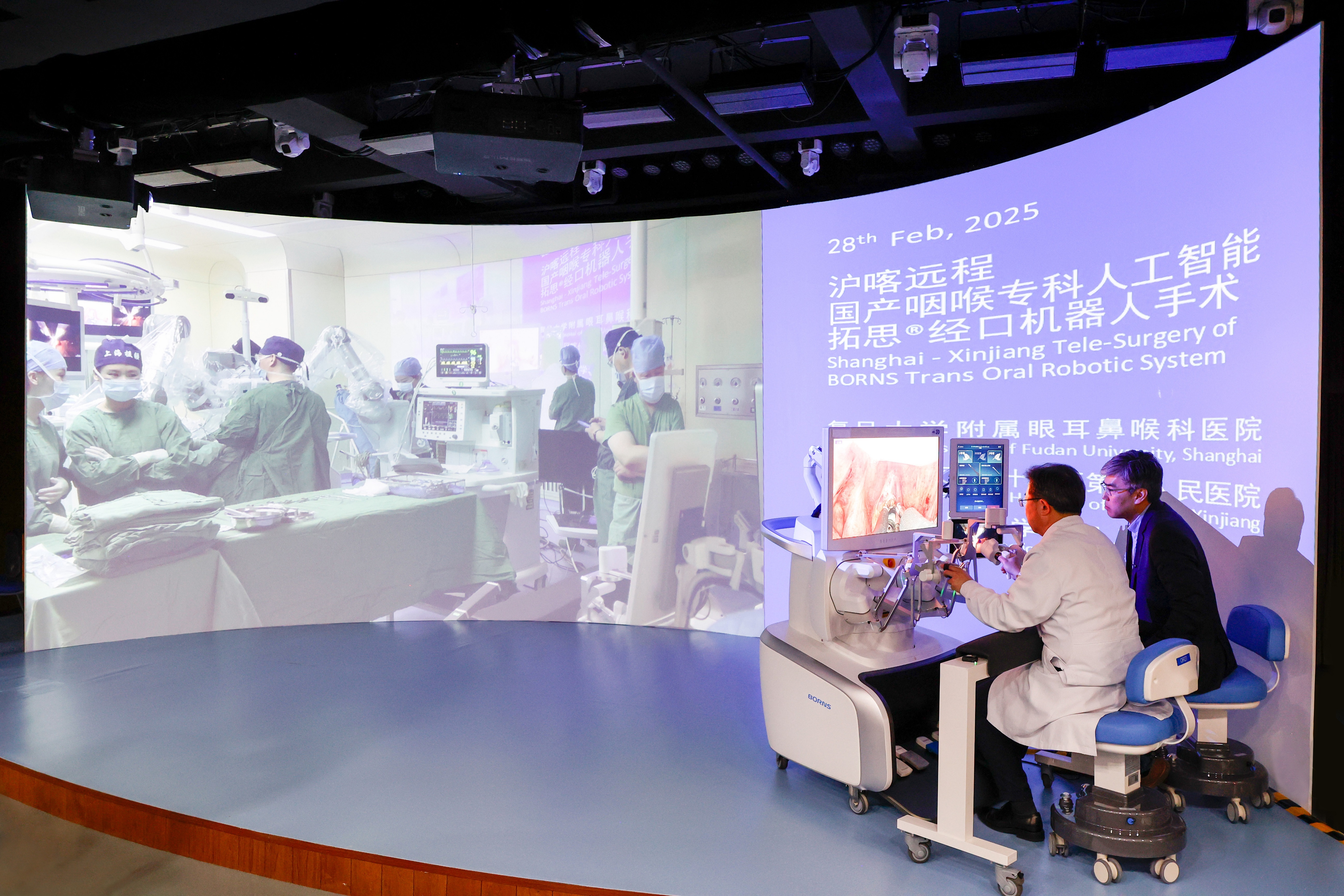TORSS Makes History with World’s First AI-Powered Remote Non-invasive Surgery Across 5,000 Kilometers
Release time: Feb 28,2025
SHANGHAI to KASHGAR, China — Borns has shattered barriers by performing the world’s first AI-driven remote head and neck surgery—spanning 5,000 kilometers between Shanghai and Kashgar—with zero external incisions and less than 1 milliliter of blood loss.
The landmark operation, led by Dr. Lei Tao of Fudan University and executed via the Borns AI Transoral Surgical Robot (TORSS), marks a quantum jump in non-invasive robotic surgery, blending AI precision, low-bandwidth network, and multi-sensory telemedicine to redefine the future of healthcare.
01 AI + Robot: A Surgical Revolution
The Shanghai Fudan team and Xinjiang Kashgar Second People’s Hospital collaborated to remove an oropharyngeal tumor remotely—with submillimeter-level instrument control and near-zero bleeding. The TORSS robot, guided by AI, mirrored a surgeon’s movements in real-time—despite the vast distance—thanks to breakthroughs in latency compensation and haptic feedback. This proves AI-assisted telesurgery can overcome geography, bringing world-class care to remote regions like Xinjiang’s Pamir Plateau.

02 AI + Internet: The Dawn of ‘Remote Intelligence’
TORSS, co-developed by Fudan University’s Eye, Ear, Nose & Throat Hospital and Borns Medical Robotics, leverages: AI big models to cut through low-bandwidth delays. Digital twin tech (video, voice, and force feedback) to enable surgery on regular networks. Rural hospitals can now perform expert-level minimally invasive surgeries—and junior surgeons can train remotely via multi-terminal control.
03 AI for Global Medical Care
Kashgar—a Silk Road hub linking China to Eurasia—has become the testing ground for the new medical frontier. AI and robotics have erased surgical “no-go zones”, turning tech prowess into a global health reform. This isn’t just a surgery—it’s a blueprint for accessible high-end medicine worldwide. Dr. Lei Tao’s verdict: “We’ve moved from theory to reality. AI isn’t replacing surgeons—it’s empowering them to reach farther than ever.”
Brief Report


